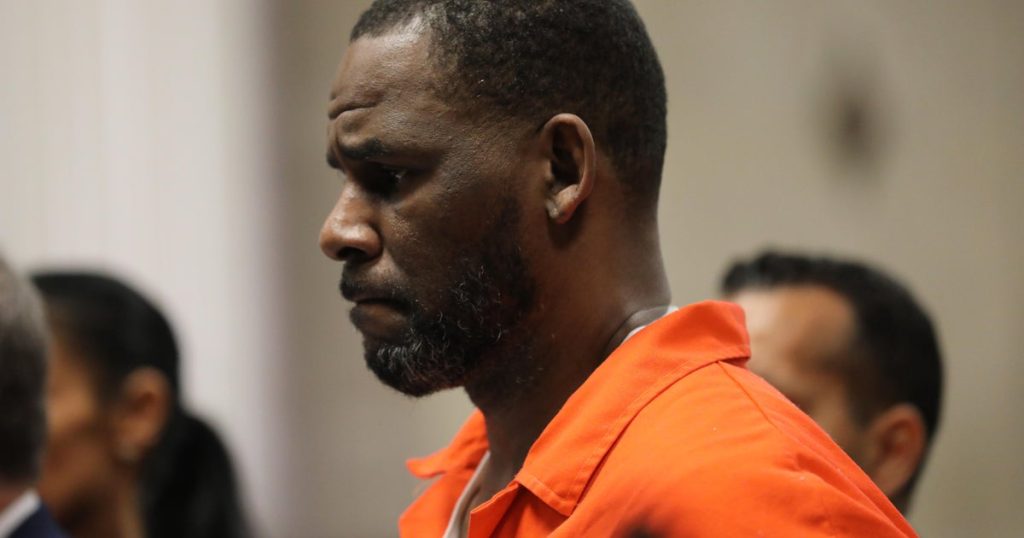In a troubling development surrounding the legal troubles of musician R. Kelly, his attorney has claimed that the singer was hospitalized due to an overdose attributed to inadequate medical supervision while in federal custody. Following this incident, the attorney made urgent requests for Kelly’s transfer to home detention, citing grave concerns regarding his wellbeing. This situation has raised significant questions about the care provided by the Bureau of Prisons and its implications for Kelly’s ongoing legal battles.
| Article Subheadings |
|---|
| 1) Details of Alleged Overdose Incident |
| 2) Medical Condition and Concerns |
| 3) Response from Officials |
| 4) Kelly’s Ongoing Legal Challenges |
| 5) Implications of the Incident |
Details of Alleged Overdose Incident
The dramatic turn of events for R. Kelly began when his attorney, Beau Brindley, reported that prison staff inadvertently administered an overdose of medication, which could have proven fatal. According to the legal filings, the singer had been receiving medication for anxiety and sleep issues but was allegedly given additional doses with instructions that led to him experiencing severe symptoms. He became faint and confused, leading to a loss of consciousness.
Brindley alleges that this incident occurred shortly after prison officials placed Kelly in solitary confinement, a move frequently made for high-profile inmates under reported threats. Following the incident, Kelly was transported to Duke University Hospital but was later forcibly removed, raising alarm bells about his medical care and overall safety while incarcerated.
Medical Condition and Concerns
Once at the hospital, medical assessments revealed alarming health issues. Kelly demonstrated signs of severe complications from blood clots, a condition exacerbated by the prison’s decision to discontinue his blood thinner medication. Brindley outlined that Kelly had a historical relationship with blood clotting problems, necessitating medical attention that should have been prioritized more effectively in prison.
Doctors at the hospital identified clots in both legs as well as in his lungs, a grave condition that typically requires immediate intervention. Despite being informed that he would need surgery and would stay in the hospital for a week, officials from the Bureau of Prisons intervened, removing Kelly against medical advice. The attorney asserts this decision poses a life-threatening risk to Kelly, who could potentially die without necessary surgery.
Response from Officials
The Bureau of Prisons has yet to provide an official response regarding the claims made by Brindley and the subsequent medical emergency faced by Kelly. Inquiries directed at officials to clarify hospital treatment protocols and medical oversight in prisons remain unanswered. At the same time, the hospital has declined to address the matter, deferring all comment to the Bureau of Prisons.
This lack of transparency fuels public concern regarding Kelley’s treatment and raises questions about why he was moved from medical care despite a doctor’s orders, fostering speculation on the factors motivating such a decision.
Kelly’s Ongoing Legal Challenges
R. Kelly has been imprisoned following serious convictions related to racketeering and sex trafficking, sentences totaling nearly 50 years across different appeals. His legal battles are ongoing, and these recent incidents in his incarceration may impact public perception of his treatment as well as future court proceedings. Notably, Brindley has previously raised alarm over threats to Kelly’s life within prison, citing allegations that officials may have colluded with dangerous individuals to put him at risk.
These legal issues and health crises converge to shape the narrative around Kelly, complicating his situation significantly and suggesting that the challenges he faces extend beyond mere legal battles.
Implications of the Incident
As the situation unfolds, the implications for the Federal Bureau of Prisons and their protocols come under scrutiny. The incident highlights potential deficiencies in medical care for inmates, particularly for those with pre-existing conditions like blood clots. In addition, it raises questions about operational protocols concerning medication management and the treatment of prisoners who require specialized medical attention.
Advocates for prisoners’ rights have called attention to this concern, emphasizing that adequate medical oversight is essential in safeguarding the health and wellbeing of incarcerated individuals. The ruling on Kelly’s request for home detention remains to be seen, but it could spark further discussions on the adequacy of prison healthcare systems.
| No. | Key Points |
|---|---|
| 1 | R. Kelly was hospitalized after an alleged overdose involving his medications. |
| 2 | Kelly’s attorney claims that his removal from the hospital was against medical advice. |
| 3 | Concerns over Kelly’s medical treatment might indicate broader issues within prison healthcare. |
| 4 | The Bureau of Prisons has yet to publicly respond to the allegations regarding Kelly. |
| 5 | Legal proceedings and potential shifts toward home detention are ongoing for Kelly. |
Summary
The situation surrounding R. Kelly raises critical questions about the treatment of inmates, particularly concerning medical oversight and emergency responses. With allegations of negligence and serious health threats surfacing, the discourse surrounding prison healthcare is likely to intensify. The decisions made by the Bureau of Prisons, especially concerning Kelly’s urgent medical needs, will be pivotal in shaping public opinion and potentially impacting the broader conversation on inmates’ rights and safety.
Frequently Asked Questions
Question: What led to R. Kelly’s hospitalization?
R. Kelly was hospitalized following an alleged overdose due to improper medication administration while in federal custody, according to claims made by his attorney.
Question: What medical conditions did R. Kelly face while hospitalized?
While hospitalized, R. Kelly was found to have blood clots in both legs and his lungs, conditions that required surgical intervention which was denied by prison officials.
Question: What action has R. Kelly’s attorney taken regarding his imprisonment?
R. Kelly’s attorney has filed court motions requesting that he be moved to home detention due to concerns over his medical treatment and general safety while incarcerated.
